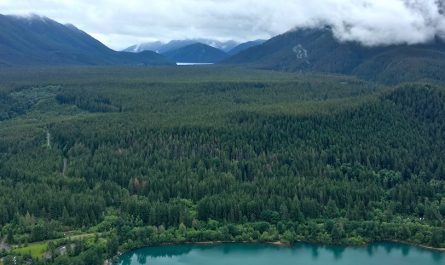
This is the second step in my series on how to create a cooperative. In my last post, I began to form my consulting cooperative’s founding members. Now, we’ll assemble those folks to create the groundwork for our new cooperative. Here’s the table of contents:
Introduction to cooperatives
Building a cooperative: step by step guide
- Collect information, clarify needs, and assemble your founding members.
- Discuss needs and vision; coordinate organizing and business research.
- Consolidate a clear vision.
- Design your decision-making process.
- Conduct a feasibility study.
- Create a business plan.
- Define roles.
- Convene your first cooperative owners meeting.
- Convene your first board meeting.
- Begin operations!
Before we get started, I’ve prepared a caveat amuse-bouche for you. The Start the future category is informal guidance written by a semi-serious person (who is VERY serious about cooperatives!). I’m not a lawyer but I did like to argue as a kid. Your success using this guide is not guaranteed. Now, onward!
discuss needs and vision; coordinate organizing and business research
This step is all about gathering. We assembled our founding group and generated some ideas in step 1. Now it’s time to convene and start documenting what we want to do. This is an important step because it lays out the groundwork we’ll use throughout the other steps. The business plan we create in step 6 has its roots in what we write down in this step.
Here we begin to start a documentation process that will last the next 3 steps. We’ll also need to start taking action. Most cooperatives form a steering committee that take on or assign tasks to members.
We may start by asking ourselves a very fair question, “what do we do successfully? Quickly.” What will our day-to-day work be? What client audience are we focusing on? What niche will our cooperative fill?
This step also asks us to conduct some business research about our place in the industry. How much of a market is there for that niche? How many other players are in this field? How do we differentiate ourselves from them? What technical skills, licenses, or certifications will we need to launch our business?
how we proceed
In the last step we:
- reached out to potential cooperative members
- drafted a mission and core values
- took an inventory of each member’s skills and interests
In this step we ask ourselves, what’s our purpose? How can we put our members’ skills and interests to use in the formation of our co-op?
I would assign work based on those skills that members offered to the group. I would also be very mindful to balance each person’s workload for fairness. Just because you’re good at something doesn’t mean you have to lead a task related to it. This is especially true if you’re good at more than one critical piece of the startup. I’d guess that our members all have full-time jobs to do while we start our cooperative. Instead of one person handling many things, they might instead lead one thorny issue. They could then take on a smaller advisor role in their other skill areas.
For instance, I would leave market research to another more savvy member of my group. I could conduct research but I’m easy to distract. I would spend way too much time reading documents that aren’t super relevant to my research needs. Instead, I could be the group’s writer: bringing back an organized draft of what we discussed at the last meeting.
Finally, we’d establish our steering committee. I would recommend we adapt a distributed leadership model. Sociocracy For All has an article about forming an organization using circles as decision-making hubs. The founding members may begin as one circle. This circle discusses and approves by consent all major business decisions. The circle can also “bud” off sub-circles as the organization grows or becomes more complex. Each circle has two links to the central circle so that everyone stays informed and involved.
With the steering circle in place we can start assigning tasks. At our current stage we can also start to ask who is missing from our group. What perspectives or skills could we use right now? We may need someone with bookkeeping experience. Or we might lack the knowledge to rent and outfit a workspace. If we don’t have those skills in our group now, how do we find them?
case study: Food Forest and Learning Centre Cooperative
In a remote area of Saskatchewan Canada, on Manitou Lake, sits 50 acres of land converted into a food forest. In nearby Viscount is a learning centre that offers shelter for people in need, classes, and more. These spaces are collectively known as the Food Forest and Learning Centre Cooperative. Founder Maggie Bluewaters was a member of a group of children called the Sixties Scoop. This was a systemic effort that stole First Nations, Métis, and Indigenous children away from their families. Bluewaters calls the cooperative she founded a “personal work of reconciliation.” It allowed her to reconnect with the culture that she had lost. More than 30 women from two Indigenous families are members of this cooperative. In some ways, the cooperative is the center of Bluewaters’ healing journey back to her people. It in turn is also a place of healing for many more people in the community.
Maggie Bluewaters started her cooperative with a clear vision. She responded to a need for native food and healing among her people. The cooperative featured in several guides about cooperatives built by native owners. I wasn’t able to find current news articles about the Food Forest near this town of ~250. In 2017 the co-op announced plans to build a healing bathhouse for elders and local residents. I hope they continue to invest in their community using a cooperative model.
analysis
There’s a lot of planning in this guide! We don’t actually start writing documentation that outsiders will see until step 6. It may seem too ponderous for starting a new business, but that may be intentional. Most commercial businesses start with one or two founders who call all the shots. Everyone who joins after them risks the power dynamic of a founder or owner versus an employee. In a cooperative, we disrupt traditional power dynamics by externalizing most decisions. Decisions don’t get made by one person regardless of everyone else’s opinions. Instead, we talk, hash out conflict, and move forward with everyone’s blessing to do so.
I wrote step 1 back in September 2022. That was nine months ago! Since then, workers cooperatives are forming faster than ever, all over the globe. In Washington a new law makes it easier for companies to convert to worker-owned cooperatives. I’d like to think that more people realize that the only thing better than having a nice boss is being an owner.
my name is josh martinez. i have always loved trying to understand systems, and the systems that built those systems. i spend a lot of time thinking about how to get there from here.
i own and operate a consulting practice, Future Emergent.
say hello: josh[at]bethefuture.space
 by
by 


